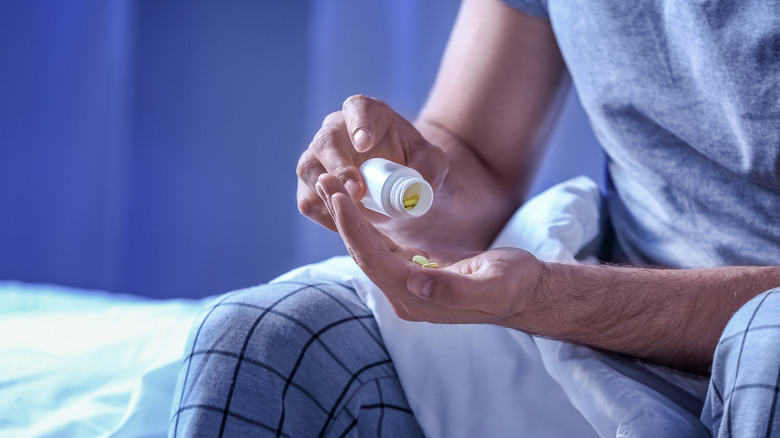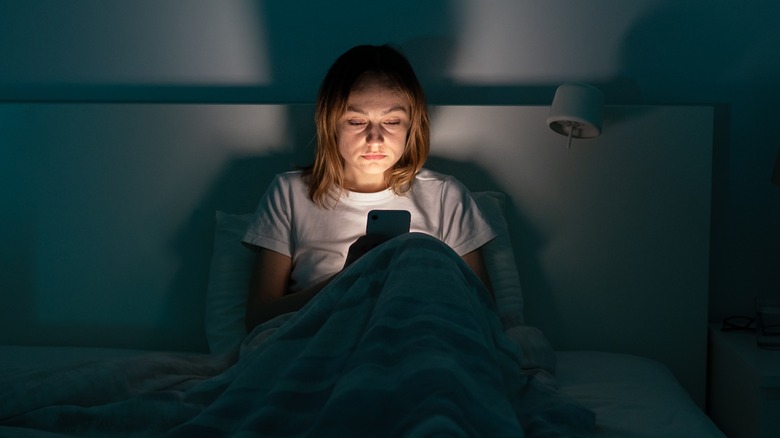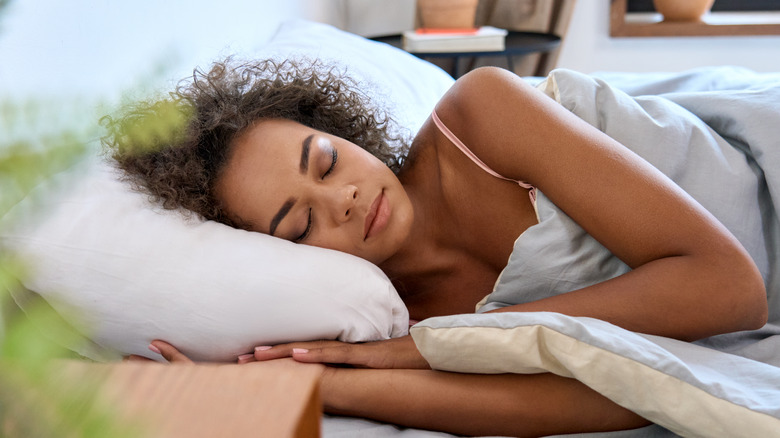Can Insomnia Be Treated With Trazodone?
You know how important it is to get a good night's sleep. Sure, it helps you feel refreshed so you can conquer the next day, but sleep helps restore your immune system, metabolism, circulatory system, and cognition. Yet the Sleep Foundation says as many as two-thirds of us have occasional problems with sleep. We might experience acute (or short-term) insomnia as a result of a stressful chapter in our lives. If insomnia persists for several months, it's considered to be chronic. Chronic insomnia can affect as many as 15% of people.
The U.S. Food & Drug Administration (FDA) has approved 17 medications for insomnia, including Ambien (zolpidem), Lunesta (eszopiclone), and Restoril (temazepam). Additionally, trazodone, which is an FDA-approved antidepressant, is often prescribed off-label for people with insomnia, according to a 2023 study in the Journal of Clinical Medicine. It's often used because trazodone is relatively inexpensive and less susceptible to abuse because it's non-addictive.
According to a 2017 systematic review in Innovations in Clinical Neuroscience, trazodone was found to be useful in treating primary and secondary insomnia. Primary insomnia is when your difficulty sleeping is the main concern, whereas secondary insomnia occurs as part of another condition such as a mental health disorder (via Landmark Recovery). However, there are some caveats to consider.
Trazodone isn't designed for insomnia
Trazodone works to balance your brain's level of serotonin, which is the neurotransmitter that helps regulate your mood (via WebMD). Trazodone is an FDA-approved medication to treat depression, although it has also been used to treat anxiety and insomnia. The drug's side effects can make you dizzy or drowsy. Other side effects include blurred vision, diarrhea, headache, and heart palpitations, and less common side effects are hallucinations, seizures, and mania (via Landmark Recovery).
However, the American Academy of Family Physicians suggests against using trazodone to treat insomnia. A 2023 article in American Family Physician said that although trazodone might reduce the number of times you wake up during the night, it hasn't been shown to improve the total amount of sleep you get. Trazodone also doesn't improve how quickly you fall asleep or sleep efficiency, which is the ratio of how much time you're asleep to how much time you're in bed. Compared to a placebo, trazodone can cause more grogginess, dry mouth, and thirst. Compared to zolpidem (Ambien) and benzodiazepines, trazodone has a higher risk for falling.
Other methods for treating insomnia
How well you sleep while taking trazodone depends on your dose, according to Sleepstation. A lower dose of trazodone might help with sleep, but a higher dose will boost your mood. The problem with trazodone in treating insomnia is that you could experience insomnia again (or have a worse case of it) if you stop taking it. Instead, it's best to tackle what's causing your insomnia.
According to the Sleep Foundation, short-term insomnia might not need medication such as trazodone. Instead, you can focus on good sleep habits such as keeping your bedroom dark and quiet, avoiding alcohol and caffeine before bed, and keeping the same bedtime every day. Cognitive behavior therapy for insomnia is the best method of treating chronic insomnia because it addresses any issues related to your insomnia. If your insomnia is related to another condition such as sleep apnea or depression, it's best to work with your doctor in treating your primary condition rather than resorting to sleep medications.



